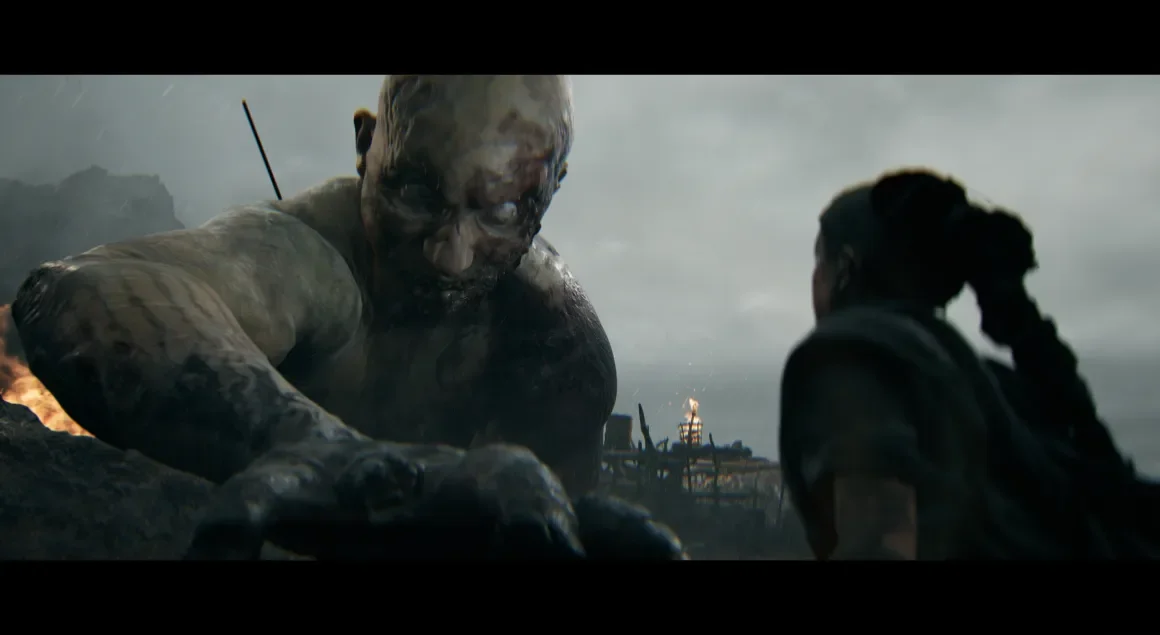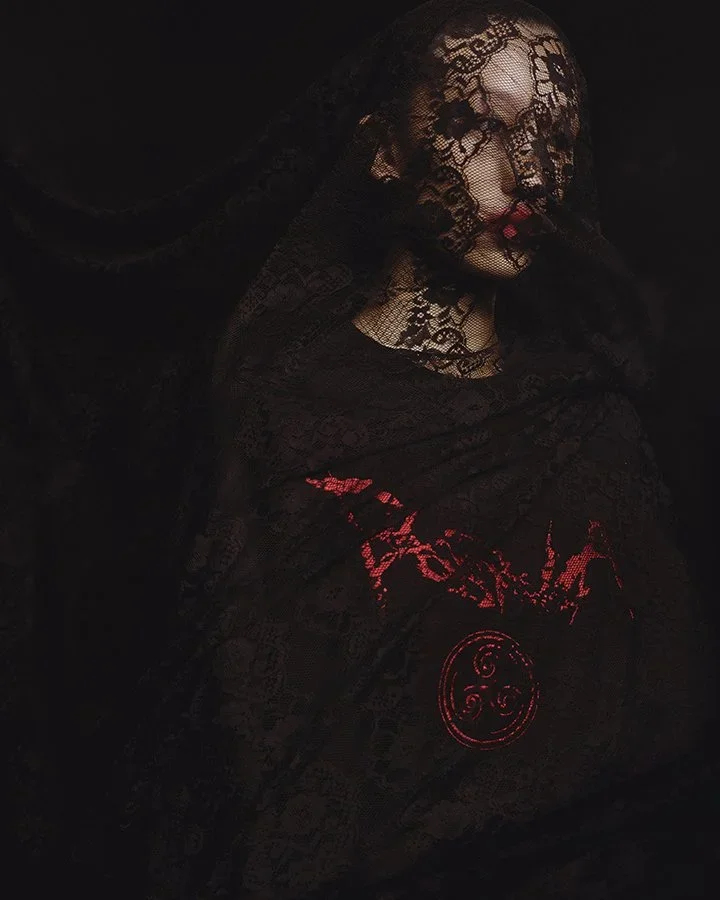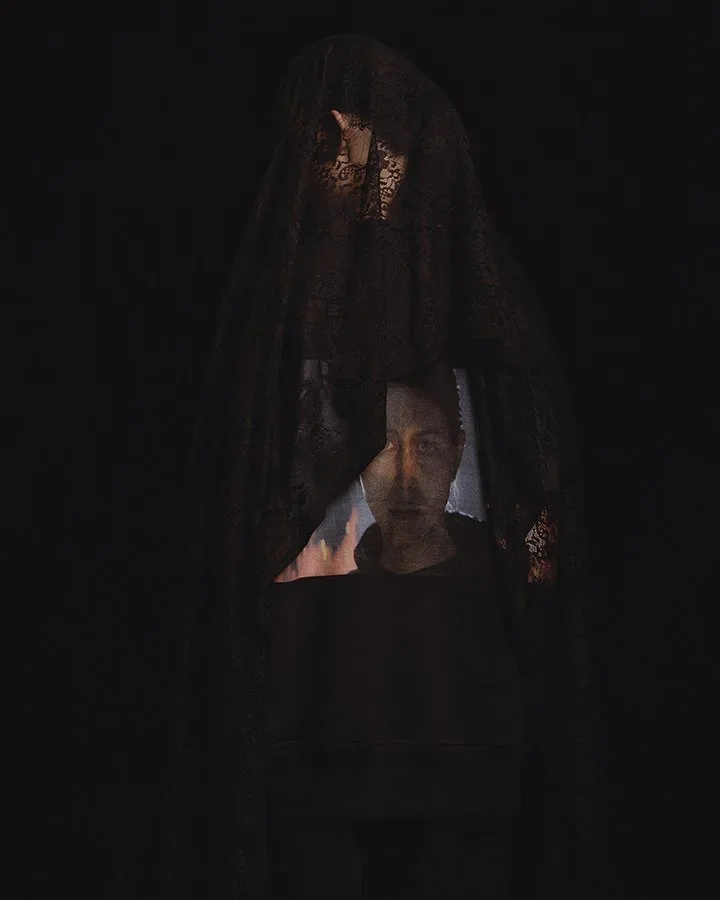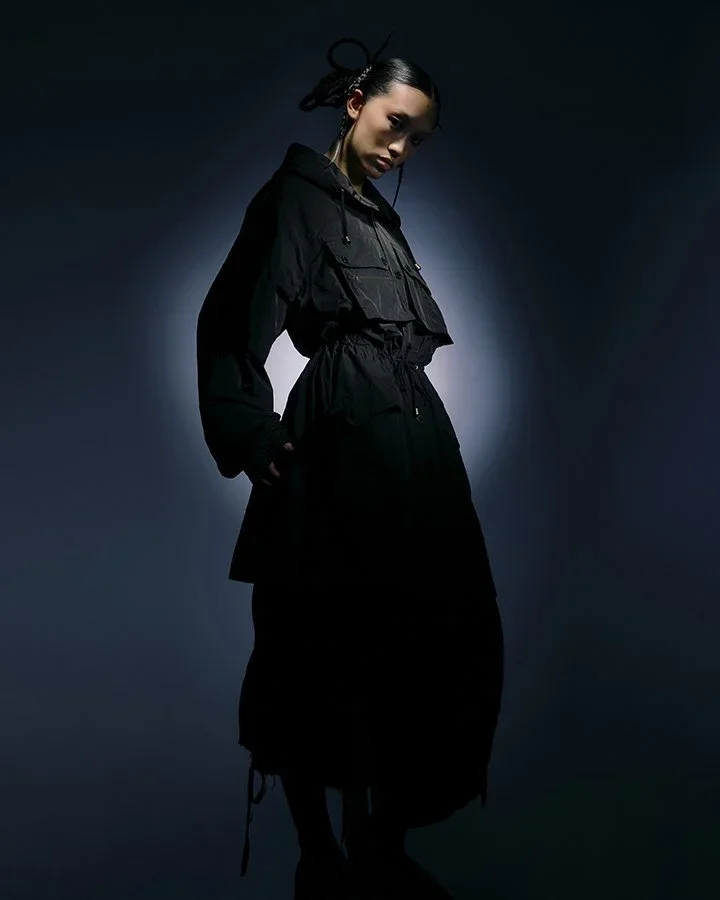Hellblade x Passarella Death Squad: A Decade-Long Creative Connection

In recent years, the line between gaming and fashion has blurred. As virtual worlds become more immersive and visually rich, it’s only natural that their influence spills into fashion and subcultural aesthetics. Now, one of the most uniquely compelling partnerships in this space arrives - a new collaboration between Passarella Death Squad and acclaimed game studio Ninja Theory.
Releasing August 8th, at the centre of this collaboration is Hellblade, a critically acclaimed game that has carved out its own space in modern gaming history. Developed by Ninja Theory, Hellblade: Senua’s Sacrifice first launched in 2017 and told the harrowing tale of Senua, a Celtic warrior battling her way through a vision quest into Viking hell to retrieve the soul of her lost lover.
Image by © Copyright 2025 Ninja Theory Ltd.
What set Hellblade apart wasn’t just its cinematic visuals or immersive audio, it was its unflinching portrayal of mental illness. Created in collaboration with neuroscientists and people who experience psychosis, the game took players deep into Senua’s mind, offering an emotionally intense and empathetic experience rarely seen in the gaming world.
The recently released sequel, Senua’s Saga: Hellblade II, continues that legacy, placing Senua in the mythic brutality of Viking Iceland. The game explores survival, grief, and tyranny with striking visuals and a haunting soundscape. It’s a testament to how far gaming has come as an art form, and why Hellblade has become a beloved, BAFTA-winning series.
Image by © Copyright 2025 Ninja Theory Ltd.
With its emotionally raw storytelling, revolutionary audio design, and deep visual symbolism, Hellblade is as much a cultural artifact as it is a video game. And now, it’s getting a new form of expression through fashion.
This collaboration is a product of a decade-long creative connection. Back in 2014, Ninja Theory handpicked Passarella Death Squad’s track Just Like Sleep to soundtrack the first teaser trailer for Hellblade: Senua’s Sacrifice, and is present in the final release of the game. The track’s moody, cinematic atmosphere was a perfect match for the game’s haunting aesthetic.
Image by © 2025 Passarella Ltd
Now, more than ten years later, that creative synergy is being reawakened through a fashion capsule that pays homage to Hellblade's striking visual and emotional world. Founded in 2004 by artist and musician Danny Passarella, Passarella Death Squad is a cult London-based brand known for its multi-disciplinary approach. With roots in music, art, and high-concept fashion, Passarella has become a fixture in underground culture, fusing dark romanticism with global sensibility.
Image by © 2025 Passarella Ltd
Shot in low light with a cinematic edge, the visuals behind the collection reflect the haunting world of Hellblade. The imagery is dark, intimate, and emotionally charged, much like the game itself. The collection comprises 4 T-shirts, 2 long-sleeved T-shirts, 4 jackets, 4 sweats and 1 short sleeved shirt, with each piece made in England using premium Japanese and English fabrics.
Image by © 2025 Passarella Ltd
What makes this collaboration so powerful is that it isn't surface-level, it's deeply rooted in a shared philosophy. Both Ninja Theory and Passarella Death Squad are artists in their own right, exploring the edges of their mediums with bravery and vision. Together, they’ve created a capsule that reflects the emotional depth and cinematic quality of Hellblade, while offering fans something tangible to carry with them.
Image by © 2025 Passarella Ltd
We sat down with both teams behind this release for an exclusive interview to get a further insight on why video game, fashion, and art go hand in hand.
Thank you so much for talking to us. Could you please introduce yourselves?
Danny: My name is Danny Passarella, since 2004 I’ve ran Passarella Death Squad, a multi-disciplinary company based in London that makes clothing, music and art. For the music side of the project I’m also joined by vocalist Emilie Albisser.
Melina: Hi! I’m Melina Juergens, and I play the lead character Senua in the video games Hellblade: Senua’s Sacrifice and Senua’s Saga: Hellblade II. I’m originally from Germany but moved to the UK a long time ago to join Ninja Theory as a video editor and photographer, before unexpectedly stepping into the world of performance capture acting.
For those who haven't heard of Hellblade or Passarella Death Squad, how would you describe them in your own words? And why is there a connection between the two of you?
Danny: Hellblade is more than just a game — it’s a psychological journey. Visually intense, emotionally layered, and rooted in myth and inner conflict. Passarella Death Squad has always lived in that same space — where art, music, and fashion collide to explore identity, darkness, and beauty. We both create immersive worlds, just in different mediums.
Melina: Hellblade is a deeply emotional, story-driven action-adventure game where you follow Senua, a Celtic warrior on a harrowing journey through grief, trauma, and psychosis. It’s dark, raw, and personal. We worked closely with mental health professionals and people with lived experience to ensure the portrayal was both authentic and respectful.
Passarella Death Squad is a creative collective that blends fashion, music, and art in a way that feels atmospheric and otherworldly. Their sound is haunting yet beautiful, it resonated with Hellblade’s tone right from the start. We featured one of their tracks in an early teaser trailer for Hellblade: Senua’s Sacrifice and as a remix in the final game. It helped shape the emotional atmosphere of Senua’s world in a powerful way.
You both worked together on the original Hellblade. How did the collaboration come about? What drew you to working with each other on this project?
Danny: The roots of this collaboration go back over a decade. In 2010, Ninja Theory encountered Passarella performing live at Berlin’s cult fashion destination, Darklands — a serendipitous moment that sparked an ongoing creative connection. In another twist of fate, Hellblade’s now-iconic lead actress Melina Juergens, who would go on to win multiple awards for her portrayal of Senua, also saw Passarella perform in Berlin in 2012 — in a crowd of just three people.
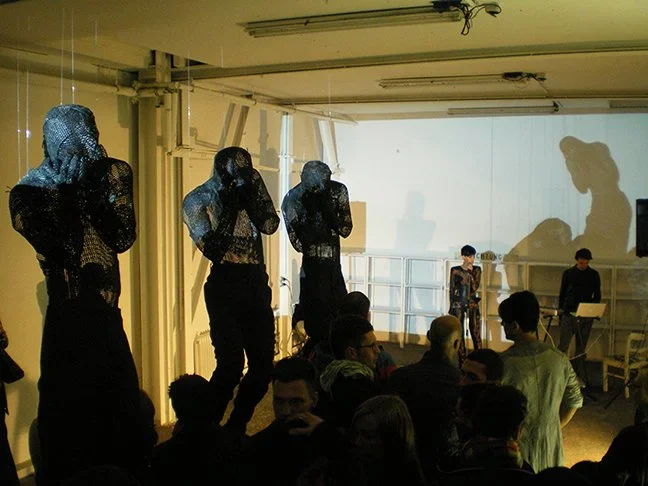
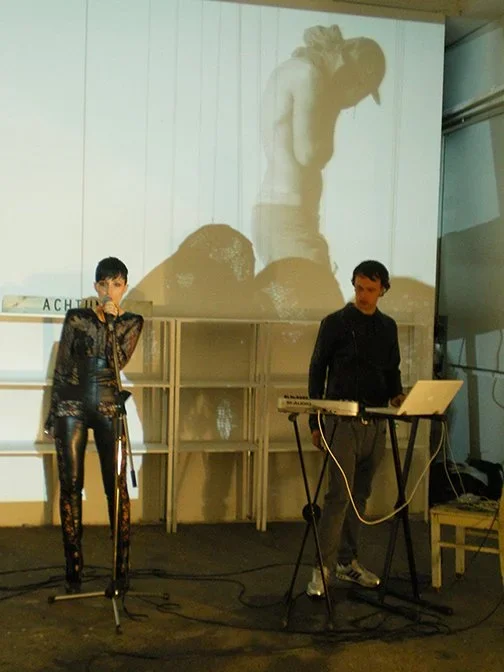
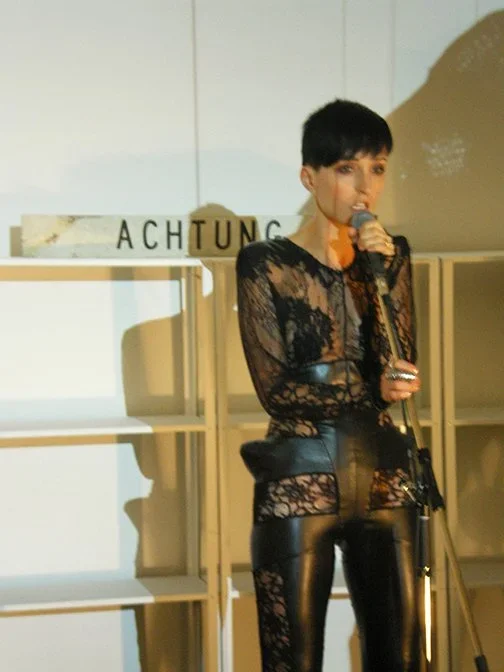
Melina: I met Danny and Emilie from Passarella over a decade ago at one of their shows in Berlin. A work colleague introduced us, and we got chatting. I instantly connected with their sound, their style, and also with them personally. We stayed in touch over the years, and when Hellblade started to take shape, it just made sense to reach out. The collaboration grew from mutual respect and a shared vision, it was very organic. And now, that connection has evolved into something new.
With this latest collection, how have you honoured the game's identity while also maintaining Passarella’s distinct DNA?
Danny: We didn’t want to just drop logos on tees — it had to feel authentic to both worlds. We took the mood and emotional weight of Hellblade and filtered it through our lens: stripped-back, cinematic, and rooted in underground culture. The quotes, the visuals, the atmosphere — they’re all pulled directly from the game, but reimagined with that Passarella edge. It still feels like us: dark, romantic, minimal — but with the soul of Hellblade woven through it. Like the game, we’re obsessive about quality — every piece is made in England using premium English or Japanese fabrics. That attention to detail mirrors the level of craft and care that goes into Hellblade.



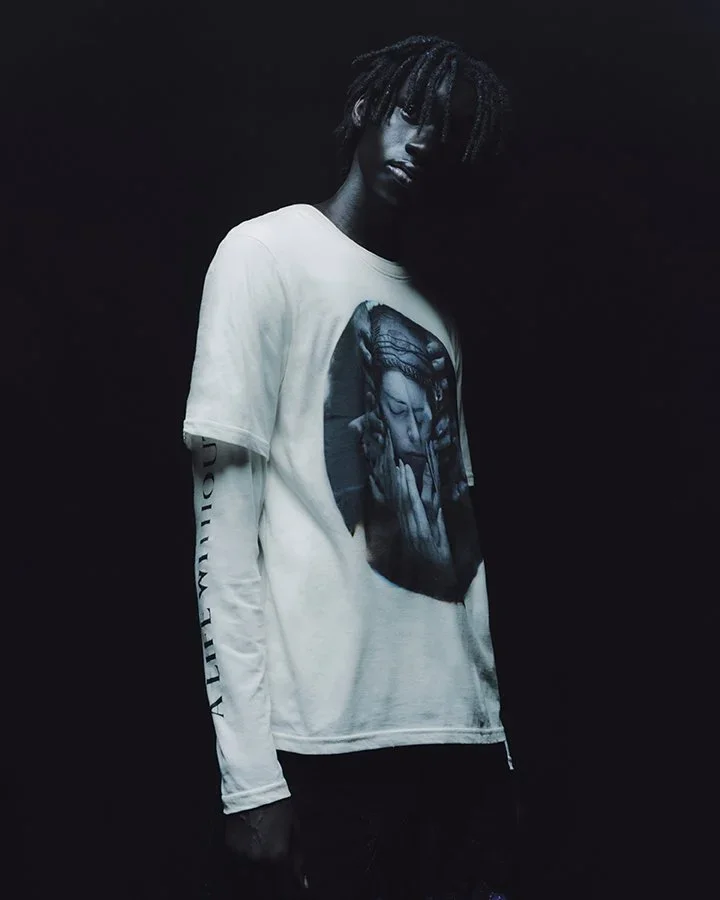
How did you end up acting as the main character in Hellblade?
Melina: At the time, I was working at Ninja Theory as a video editor, creating trailers and behind-the-scenes content. One day, they asked me to stand in as Senua for some early performance capture tests while they were still casting for the role.
I connected so deeply with the character, especially her struggles with mental health, that it just felt right. The director thought it was a natural fit and eventually offered me the role.
It was terrifying at first since I’d never acted before, but it became incredibly rewarding. In many ways, it turned into a creative outlet.
Hellblade is as much a raw, emotional story as it is a game with incredible gameplay. As the lead actor, what has it been like to convey the deep, emotional journey that Senua goes through?
Melina: It’s been intense. Senua’s story is heavy and personal, and stepping into her shoes meant confronting a lot within myself, emotionally, mentally, and physically.
But I’ve learned that strength and vulnerability can absolutely coexist. Playing Senua has been a huge responsibility and a real privilege. Hearing from people who see themselves in her journey has been deeply moving. It means so much to be part of something that helps open up honest conversations around mental health.
The original Hellblade, released in 2017, is deeply beloved. In what ways has the team at Ninja Theory honoured it in the sequel?
Melina: From the start, we felt a strong responsibility to carry Senua’s story forward with the same honesty and care, but to push it further in every way.
This time, we had a much larger and more advanced stage, a bigger crew, and I worked with an incredible cast and stunt team. All of this allowed us to bring more movement, scale, and nuance to every scene.
Our team built a world that feels truly alive. We travelled to Iceland to scan real landscapes and recorded audio in remote locations to capture the natural atmosphere. Everything feels more grounded and immersive.
Narratively, we explored a new side of Senua, not just her inner world, but how she interacts with others. That shift brought new emotional depth and showed how she carries her past while trying to connect with the world around her.
Technically, everything has evolved, but the heart is the same. Senua remains at the centre. Every decision has been about telling her story in the most honest way possible.
If this collaborative capsule could speak, what would you want it to say?
Melina: “Even in darkness, the wonder and the beauty of this world never leaves us…
Through the waves… the rainbows call.”
This is a line from Hellblade combined with lyrics from Passarella Death Squad and I think they flow beautifully together. To me, this collaboration is about pain, survival, and transformation. It speaks to the beauty that still exists after the darkness and the strength that rises from it.
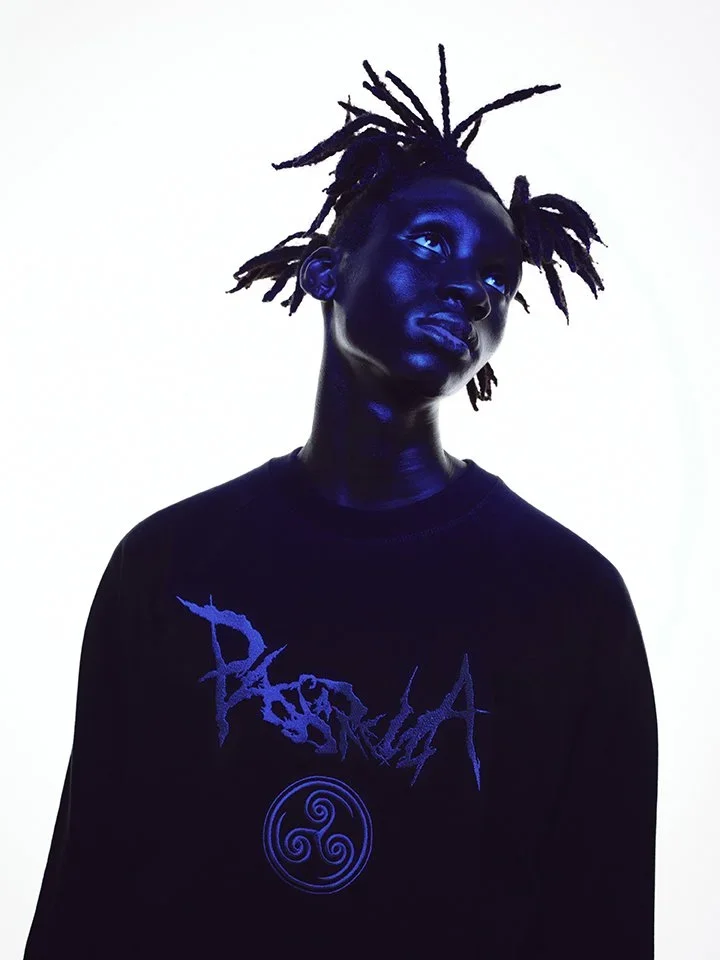
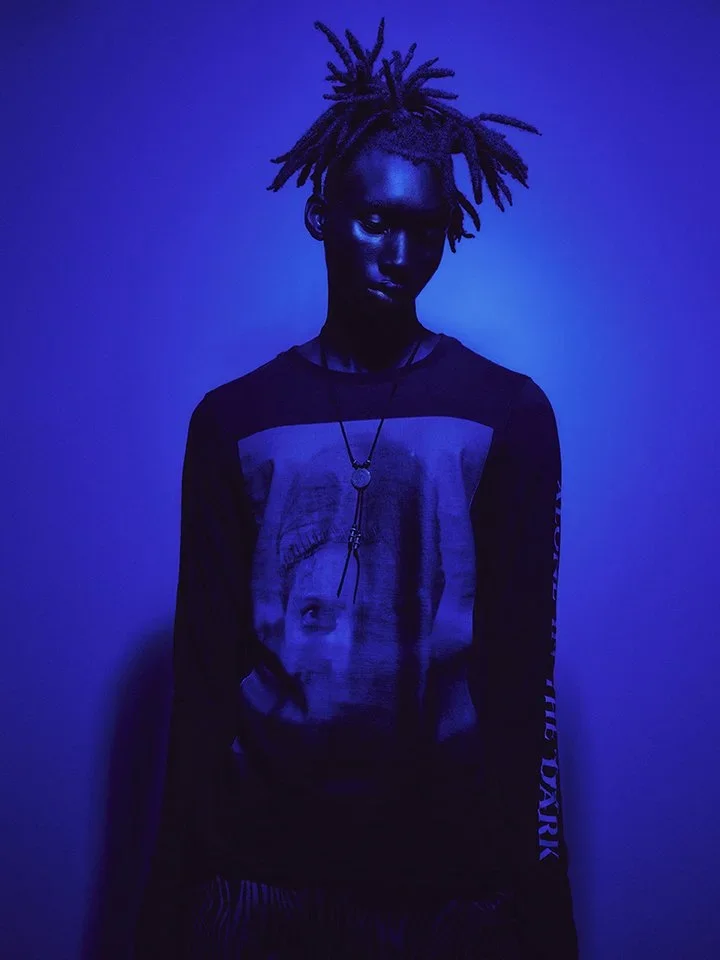
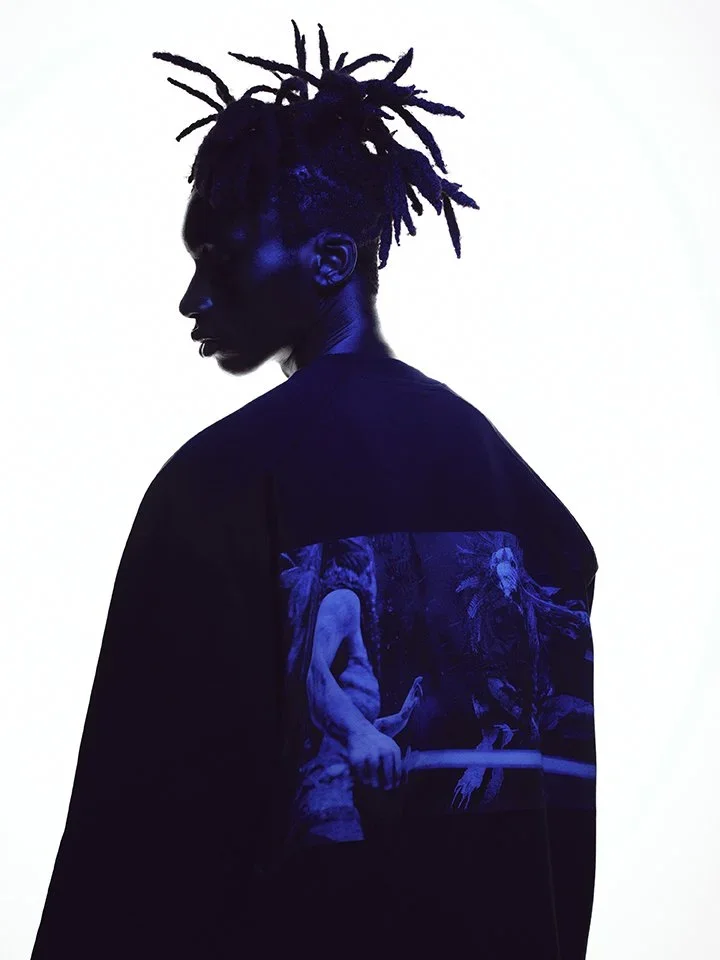
The visuals for this collaboration are stunning and align seamlessly with those used across the garments. Could you tell us more about your choices—what visuals and quotes from the game did you select, and why?
Danny: Throughout the collection, we focused on four key quotes from the game: ‘I see through your darkness’, ‘The hardest battles are fought in the mind’, ‘A life without love is one without loss’, and ‘It begins as it ends, alone in the dark’. There’s a raw honesty in those lines that really hit home — I think we can all resonate with them in different ways. Visually and emotionally, they speak to the same themes we explore in our work: inner struggle, isolation, beauty in darkness.
Passarella Death Squad has always existed at the crossroads of art, culture, and fashion. What specifically about the Hellblade games resonated with you?
Danny: As mentioned we were lucky enough to be there right at the very beginning, but Hellblade hits that rare balance between beauty and brutality — it’s dark, cinematic, and emotionally raw, which is something we really connect with.

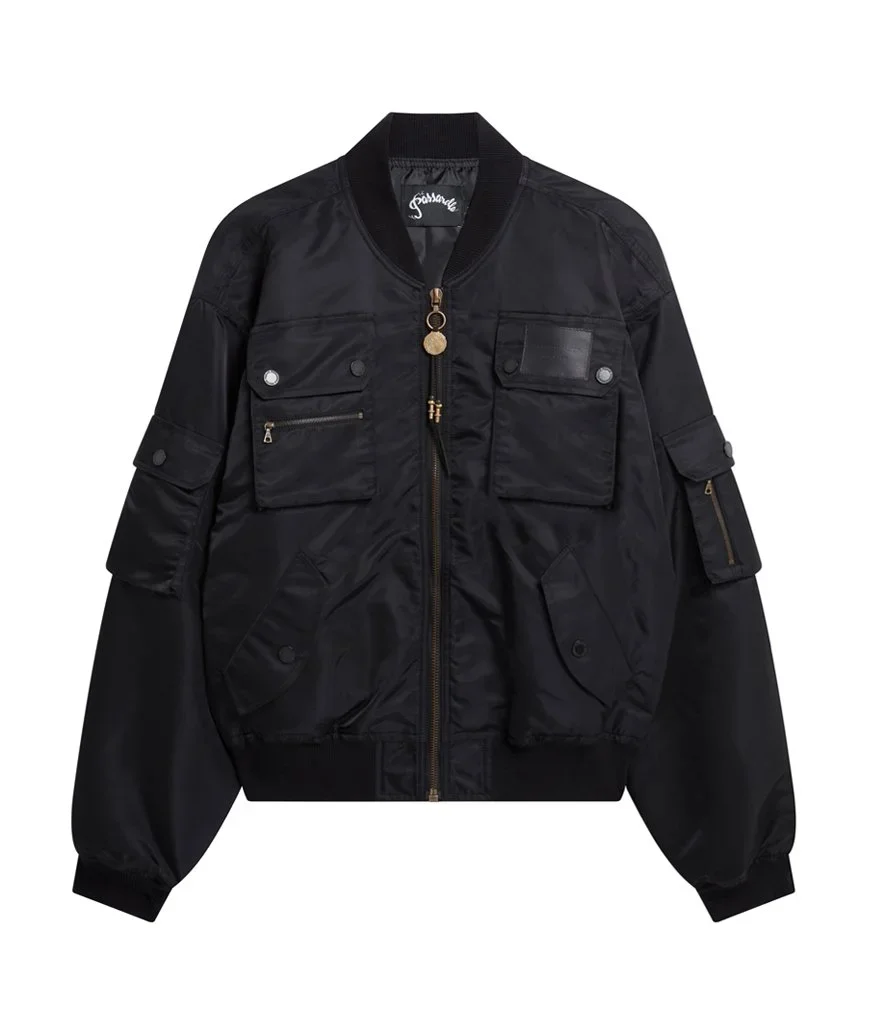

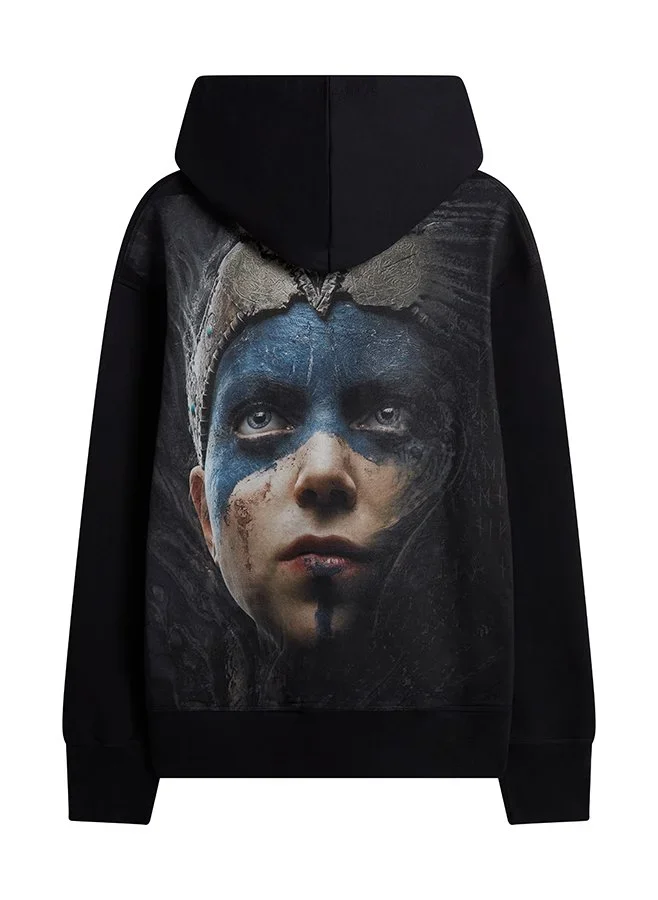
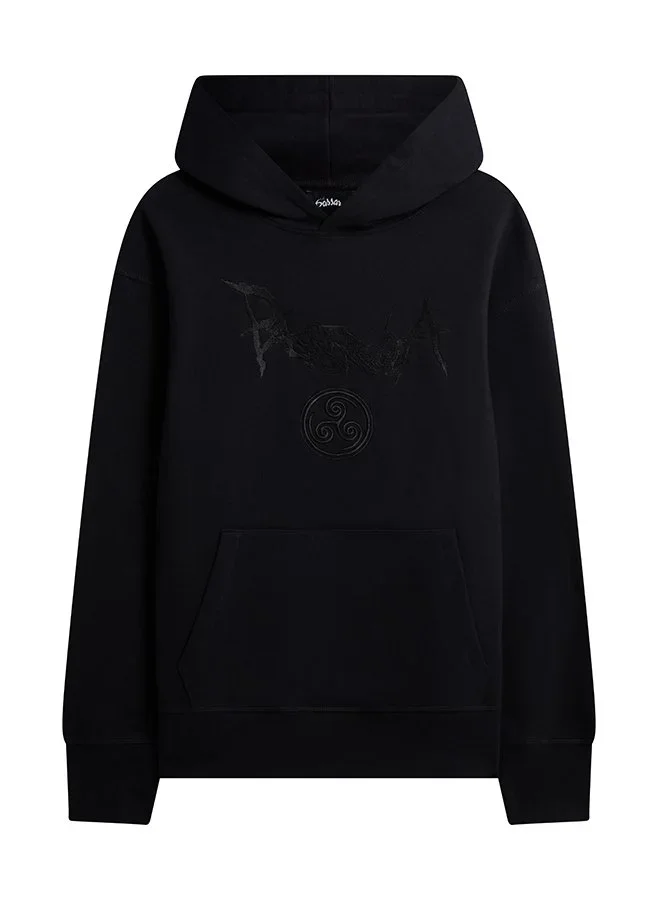
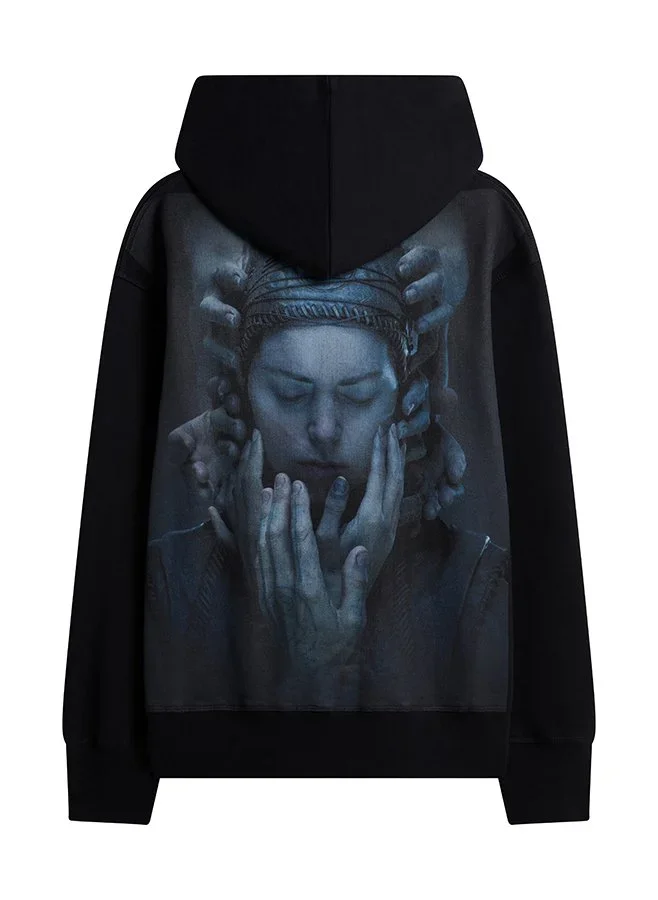
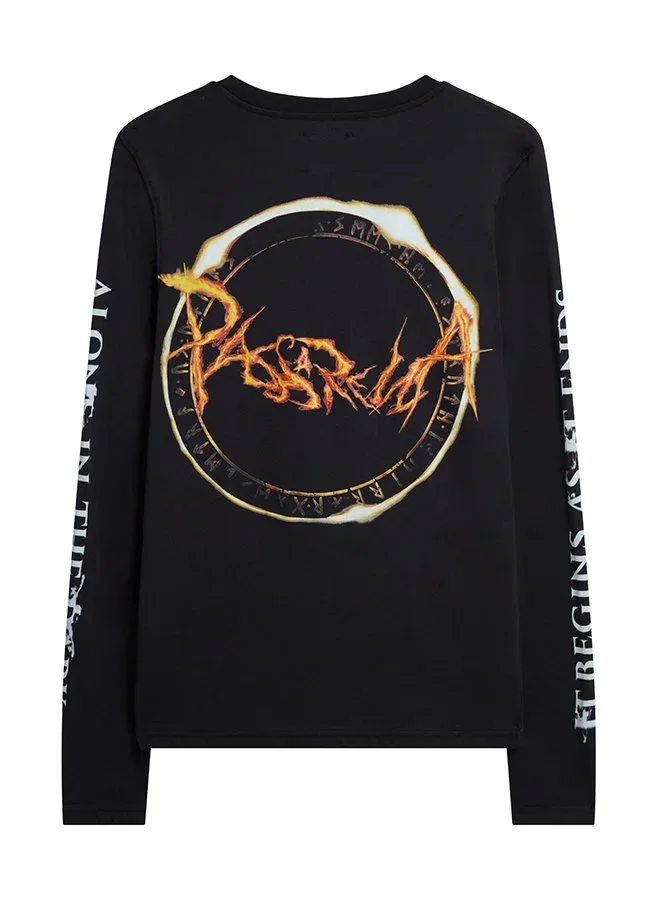
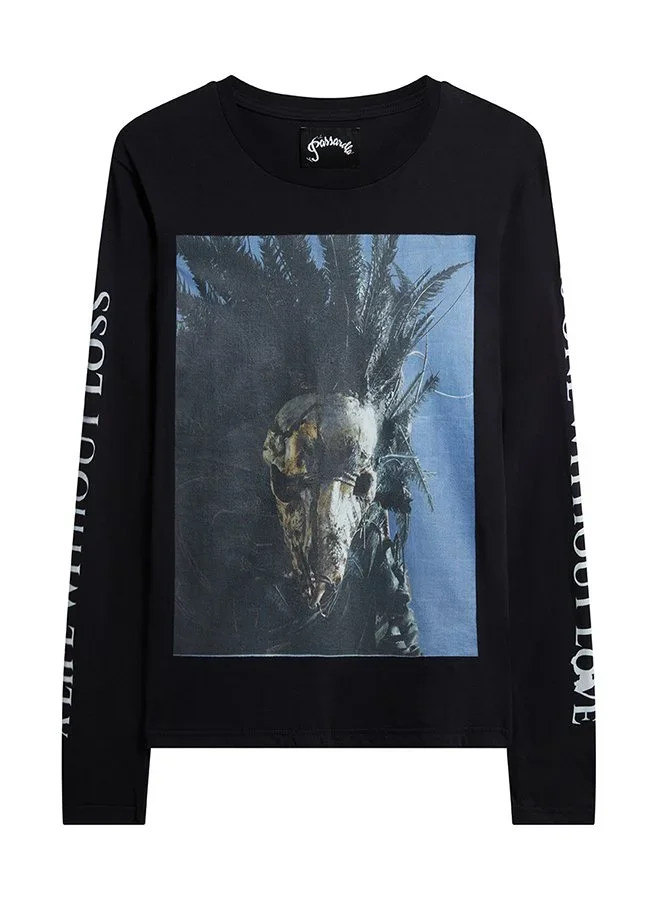
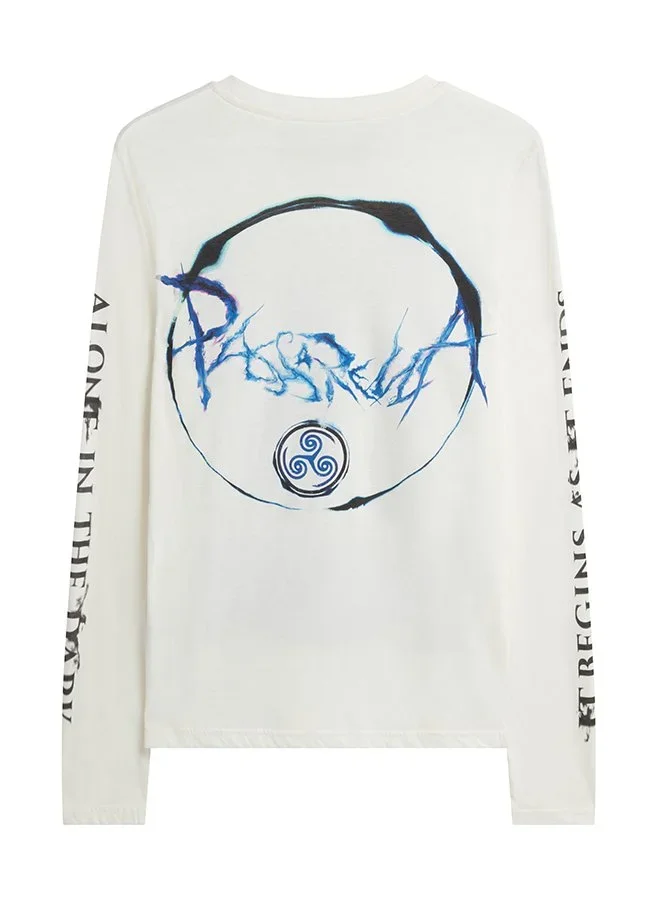



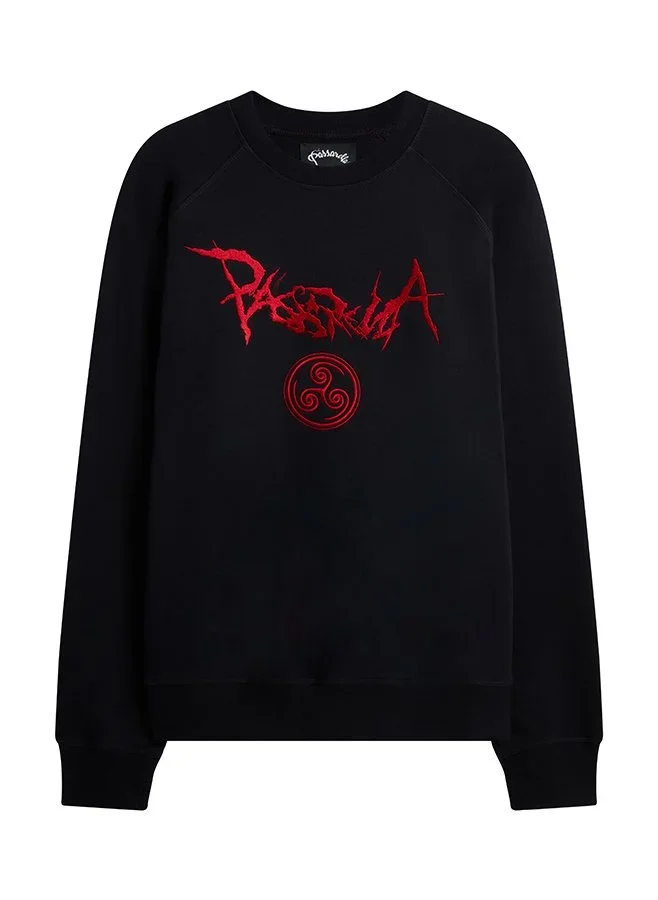
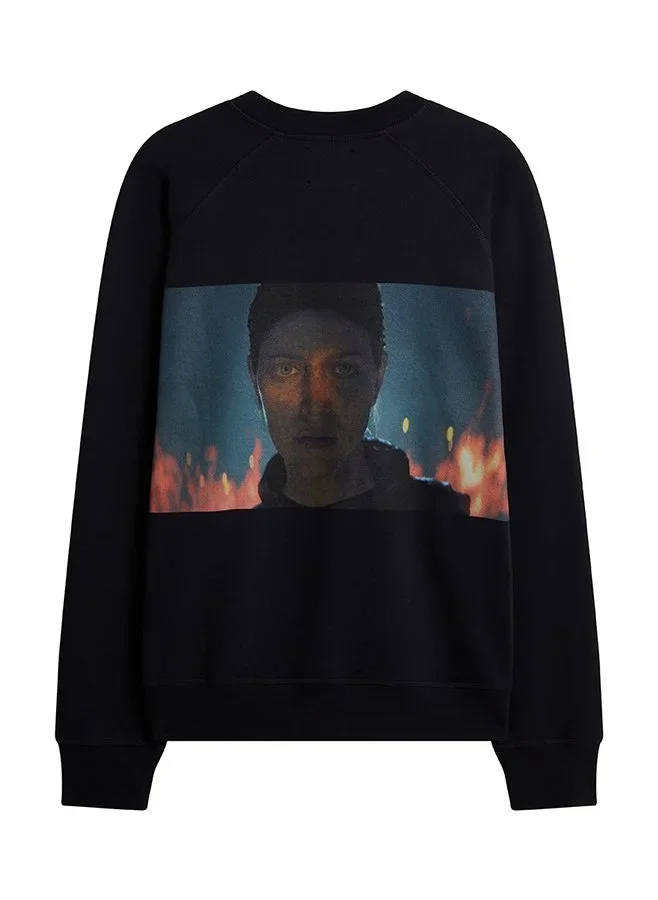




Why do you think fashion and gaming make such a powerful combination? What has each medium brought to the table creatively?
Danny: Fashion and gaming are both about identity and escape — they let people step into different worlds and show who they are without saying a word. When they collide, it gets interesting.
Words by Joe Goodwin


